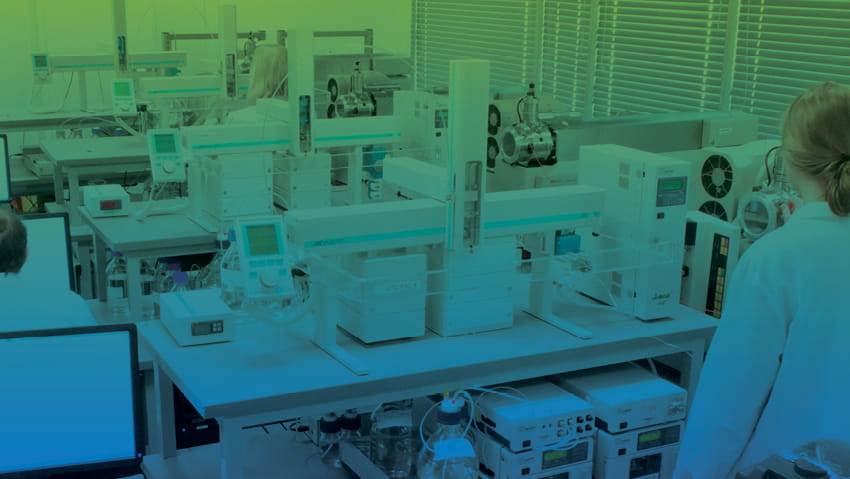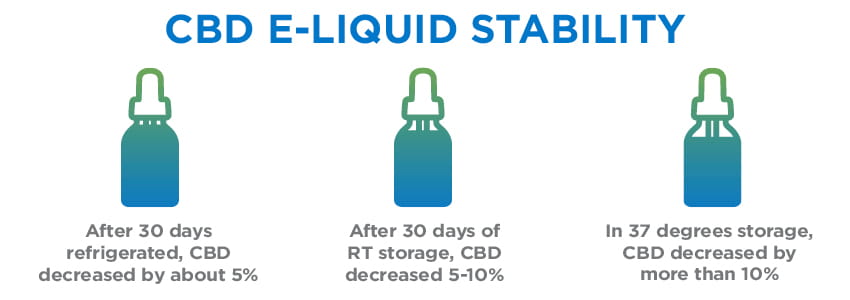Article

by Mira Doig, PhD
The use of cannabinoids in the food and holistic drug market has grown exponentially over the last decade. We can now find CBD in just about anything, from gummies to oils, peanut butters to cookies. One of the most popular growing applications of CBD is undoubtedly via vaping devices. GW Pharmaceuticals has demonstrated that oral administration of CBD is safe and recreational use indicates that it is likely to have many therapeutic benefits.
Interestingly, to date there have been no reports of bioavailability or clinical studies using vaping devices, yet CBD e-liquids are commercially available worldwide. We know that historical reports indicate that cannabis extracts containing CBD have therapeutic properties although the only registered medicine is Epidiolex® (an oral solution for severe epilepsy). The bioavailability of this formulation is approximately only 6%. We also know that the pharmacological effects of THC demonstrate smoking can increase the bioavailability of cannabinoids, and those studies indicate numbers greater than 30%.
Despite little to no regulation covering the production of these vaping fluids or their delivery devices, commercial interest determining the safety and dangers of CBD vaping fluids continues to rise. Just this month (April 2021), the Food Standards Agency (FSA) issued a requirement of CBD companies to have validated novel food applications for each of their products, and only validated products from here forward will be allowed to remain on the market. So how comprehensive is the validation process?
CBD is unstable and is therefore prone to oxidation – even in alcoholic solutions. It is also light and temperature sensitive, meaning that in some solutions, breakdown can happen within days. One research group in Italy looked at the CBD content in 13 commercially available vape e-liquids and examined how the content matched the label, as well as the stability of CBD. The solvent for these products were glycol and vegetable glycerin (no other additives were mentioned), and the CBD concentration ranged from 10 to 100 mg/mL.
The results were alarming. Five samples underestimated the CBD content by 11-92%, five more samples were within +/- 10% of the labelled content, and three samples overestimated the CBD content by 13-17%. The study then looked at the stability of CBD in these 13 products. After 30 days refrigerated, CBD decreased by about 5%. After 30 days of RT storage, CBD decreased 5-10%, and in 37 degrees storage, CBD decreased by more than 10%. Additionally, light instability was demonstrated – yet the label contained no recommendation to store the products refrigerated in the dark.

Lack of regulation, lack of testing, lack of consistency and lack of control of the devices delivering the e-liquids – while some might consider this a hurdle, ACM Global Laboratories consider it a welcomed challenge and a market of opportunity. In partnering with ACM, we’ll work to obtain data on the bioavailability of your vaping fluid in one or many vaping devices. We also have the capability of assisting with creating a device unique to your product, that is safely designed to efficiently deliver CBD e-liquids, as well as conduct clinical studies to obtain safety and efficacy data for CBD or any other cannabinoid.
ACM’s bioanalysis experience is backed by decades of work in nicotine and cannabis research. We have experience assaying a variety of cannabinoids such as CBD, CBDV and THCV and their metabolites in a variety of biological fluids. We have a routine assay that can determine CBD, THC & 11-OH THC in plasma to support any preclinical or clinical study. This has been used to support the development of cutting-edge therapeutics like Sativex® through preclinical, phase 1, 2 and 3 studies to MAA submission. We also have other assays of various cannabinoids and their metabolites that have been customized to support specific sponsor’s requirements so in addition to e-liquids for vaping products, we have the experience and knowledge to validate your CBD product in a variety of other formulations, such as food, drinks, cosmetics and other topical products.
Our chemists are dedicated to providing exceptional services, information and assurances including:
To learn more about our bioanalysis expertise please contact us below.